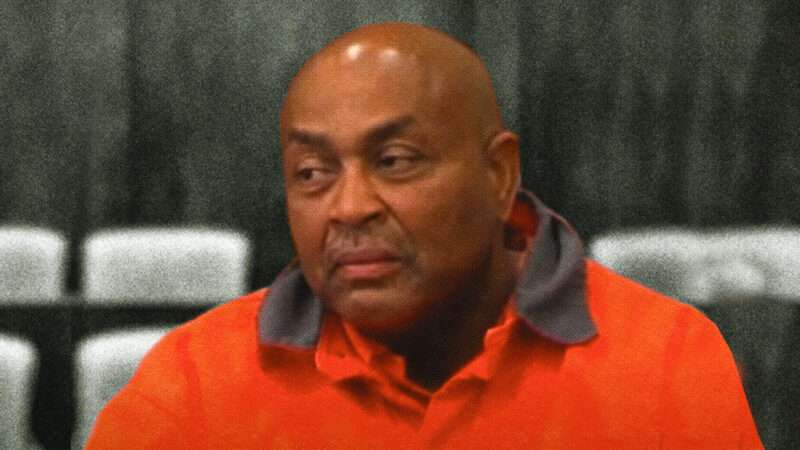
William Virgil spent almost three decades behind bars for a murder he didn't commit. That guilty verdict came down after police in Kentucky withheld evidence that may have exonerated him during trial.
Yet Virgil won't see any justice for that police misconduct, as he is now dead—the government roadblocks to his lawsuit so long and winding that they outlived him.
Such is the case with qualified immunity, the legal doctrine that allows local and state actors to violate your rights without fear of having to pay for it in civil court if the government misbehavior in question has not been "clearly established" in a prior court ruling.
But the cops at the center of Virgil's story did violate "clearly established" law.
In April of 1987, Retha Welch was found dead in her Newport, Kentucky, home after she was stabbed repeatedly, hit on the head, and raped. Virgil was almost immediately pinpointed as a suspect, having developed a sexual relationship with Welch after Welch's work in a jail ministry brought the two in contact. Based on circumstantial evidence, he was convicted the following year and was not released until December of 2015 after DNA testing excluded him as the killer.
Whether or not Virgil would have spent time in prison were it not for government malfeasance is impossible to say. But the U.S. Court of Appeals for the 6th Circuit ruled in 2018 that it should have been plainly obvious to any reasonable police officer—even in 1988—that withholding evidence from a defendant is unconstitutional. Specifically, former Newport Police Department officer Norman Wagner declined to disclose that he paid a jailhouse informant named Joe Womack to testify against Virgil after Wagner allegedly fed Womack details about the crime and promised to put in a good word with the parole board if Womack obliged. What's more, Wagner, along with former officer Marc Brandt, failed to tell the defense about a serial killer investigation possibly connected to Welch's murder, and that other suspects had been identified as a part of that effort.
"[Virgil] alleges, for example, that the officers tried to frame him; that they coerced an inmate to testify falsely that Virgil had confessed to the murder; and that they then deliberately suppressed exculpatory evidence regarding alternative suspects," wrote Judge Joan Larsen for the 6th Circuit in December of 2018. "Such conduct, if proved, would surely amount to bad faith or its functional equivalent; and there can be little question that it was well established before September 1988 that police officers could not deliberately conceal material, exculpatory evidence."
Virgil died in January of this year—almost three years after that decision came down, and even longer after a lower court came to the same conclusion. But his case was still prohibited from going before a jury, as the government insisted on appealing again to the same court which already ruled in Virgil's favor.
"A reasonably trained police officer in 1988 would have certainly known that you have to disclose exculpatory evidence implicating other people in a homicide investigation," says Elliot Slosar, an attorney at Loevy & Loevy, who is representing Virgil. "That type of law was clearly established not only by 1988, but by 1968. Because of that, we do view their appeal as frivolous."
The suit was first filed in early 2016. Virgil's estate is not expected to go to trial until 2023, with the government invoking its special protections to continue delaying a claim that multiple courts have already said should proceed to a jury trial. "Qualified immunity…enable[s] defendants who have been plausibly accused of misconduct to stretch out the litigation, to make it longer and more expensive than it would be," says Clark Neily, senior vice president for legal studies at the Cato Institute. "Unfortunately, some plaintiffs do end up dying during litigation….It's a real tragedy." Meanwhile, Virgil overcoming qualified immunity did not entitle him to any sort of judgement—it merely afforded him the privilege to impanel his peers and state his case, something his cousin will now do in his stead.
"William just always wanted justice, which means a lot of different things," says Slosar. "He wanted his day in court. He wanted for the public to see how he was framed for a crime he did not commit. He wanted for the public to see evidence of who really committed this tragic murder. More than anything, William always wanted these police officers to be held accountable for every single day that he was ripped away from his family and spent wrongfully incarcerated."
That's perhaps a modest list for someone who spent 28 years behind bars paying for a murder he didn't take part in. And yet asking the government to pay for its part in ruining Virgil's life is apparently too big an ask.
The post He Spent 28 Years Behind Bars for a Murder He Didn't Commit and Died Before Seeing Justice appeared first on Reason.com.







